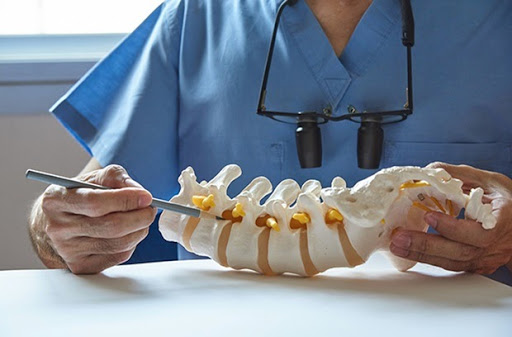Every time we move, the spine provides stability and strength to our body. Our spinal cord is also protected by the vertebrae (bones) in our spine. As a result, any issues with our spine must be treated by a skilled surgeon.
“Pain injections and other less invasive procedures will be used initially to relieve your pain or debilitating back issues. If none of these treatments work, your specialist may recommend minimally invasive spine surgery.”- Says Dr. Gurneet Sawhney who is one of the best spine surgeons in Mumbai.
There are various forms of spinal surgery that can help people with back discomfort. Following are the commonly used spine surgery procedures used by the best Neurosurgeon in Mumbai:
Lumbar Decompression Surgery
Lumbar decompression surgery, also known as lumbar laminectomy, is used to treat spinal stenosis, or narrowing of the spinal canal. The lamina, which is pressing against the spine and causing terrible pain, will be removed in whole or in part by the surgeon.
Due to the narrowing of the spinal canal with age, pressure is imposed on the spinal cord in spinal stenosis. The purpose of surgery is to expand the canal and relieve the pressure that has built up. The surgeon may have to remove bone spurs or extra tissue as part of this procedure.
Lumbar Discectomy
A lumbar discectomy is a type of spine surgery that involves removing a damaged disc from a patient’s lower back. The minimally invasive arthroscopic discectomy and open spine surgery are the two methods of lumbar discectomy. The more usual procedure for a herniated disc in the lumbar area is open spine surgery.
Surgery for a Herniated Disc
The surgeon will remove part or all of the afflicted disc during surgery to treat a herniated disc. To relieve disc pain, the doctor may remove the disc entirely and allow the two neighboring vertebrae to fuse together; however, spinal fusion prevents you from moving that area of your back, so this decision must be carefully considered by you and your doctor. However, spinal fusion surgery is now a lot safer and less hazardous than in the past.
Fusion Surgery of the Spine
During a spinal fusion, the surgeon joins two adjacent vertebrae together to prevent them from moving against each other and causing pain. The surgeon connects the vertebrae with small screws and rods, which are then permitted to heal and fuse together spontaneously. To aid with the fusion of the vertebrae, your doctor may extract a little bone graft from another region of your body.

The Risks Of Spine Surgery
Depending on your health and the precise technique you need, spine surgery can have various consequences. Furthermore, each patient’s risks may differ. Before considering spine surgery, talk to your spine surgeon about the potential risks of your condition. The following are some of the most common dangers associated with spine surgery as stated by Dr. Sawhney who is one of the best spine surgeon in Mumbai:
Clotting of the Blood
Blood clots in the legs are common after spine surgery. Blood clots in the legs block blood from flowing back to the heart. If not dissolved, this might result in severe leg pain and swelling. In the worst-case scenario, it could cause irregular blood flow throughout the body, resulting in lung issues.
After surgery, your doctor may advise you to exercise and take drugs to prevent blood clotting.
Problems with the Lungs
Your lungs may become dysfunctional as a result of the operation and drugs. Because your wound will require oxygen to heal, it is important to look after your lungs after surgery. Your doctor may discuss this with you, especially if you have breathing problems. Regular exercise and breathing exercises may aid in the maintenance of normal lung function. A respiratory therapist can advise you on appropriate exercises and drugs.
Pain and Infection
A surgical error could result in a spinal infection. Spinal infections, on the other hand, are uncommon. Incisions in the skin or infections at a deeper depth are more common. Antibiotics may be prescribed by your surgeon to limit the risk of infection, particularly from the medical devices utilized.
Right after the procedure, pain is an expected side effect. Inform your doctor if you are suffering from chronic pain.
Failed Spinal Surgery
Surgery does not guarantee that your spine-related problem will be completely resolved. Spine surgery does not always work to relieve a patient’s back discomfort. A failed surgery does not always imply that the procedure was carried out improperly. When determining whether the surgical treatment was successful or not, your medical state must also be taken into account.
There are two probable outcomes after spine surgery. It either relieves pressure on a nerve root or helps to keep a joint stable. If a patient’s source of discomfort stays the same, the procedure is a failure. Back surgery may not be the best option for you if your problem isn’t related to nerve roots or uncomfortable joints. Asking your doctor if spine surgery is the best treatment for your problem is the best approach to find out. Allow them to assess your back condition and make the best recommendation for you.

